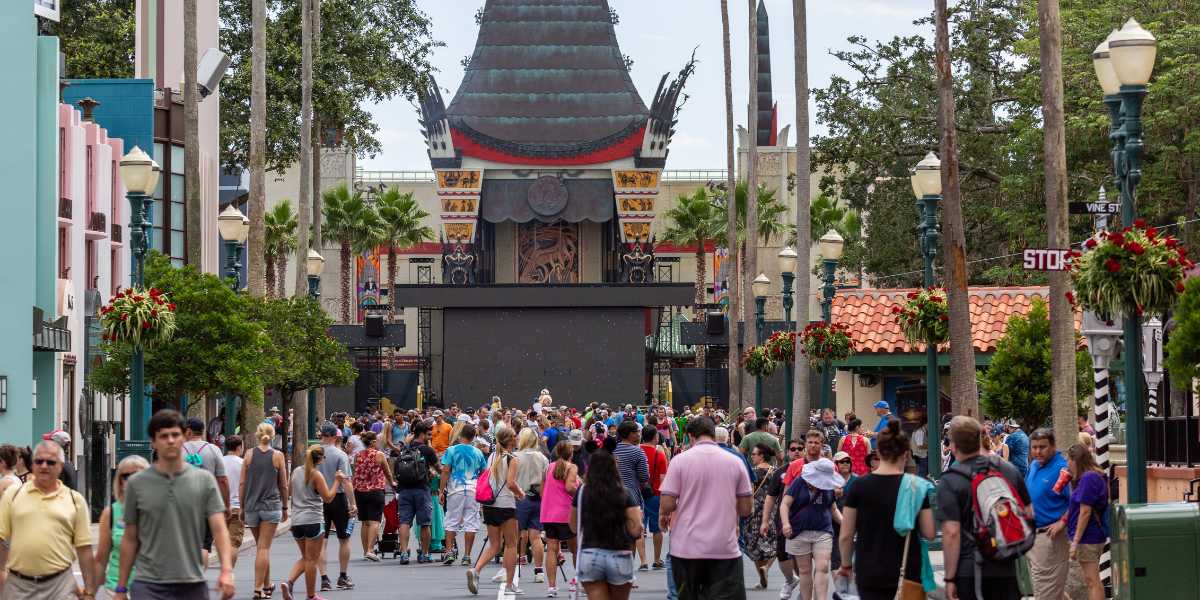The magic at Walt Disney World is a well-oiled machine. From the moment you scan your MagicBand to the time fireworks burst behind Cinderella Castle, the “Most Magical Place on Earth” appears seamless to guests. But behind that perfectly polished curtain lies an entire hidden world of operational procedures, staff protocols—and yes, code words.

A recent viral post in the r/todayilearned forum on Reddit reignited discussion about Disney’s lesser-known internal language, specifically a code phrase that cast members reportedly use when a guest attempts to scatter cremated ashes inside the park: “white powder alert.”
That revelation, while morbidly intriguing, opened the floodgates. The thread exploded with comments—many from alleged current and former Disney and other theme park employees—sharing even more examples of secret terminology used behind the scenes to address everything from bodily fluids to difficult guests, all without disrupting the carefully constructed illusion of joy and order.
What Is a “White Powder Alert,” Really?

While it may sound dramatic, a “white powder alert” reportedly refers to situations when guests attempt to leave behind the ashes of a loved one—often inside a ride, attraction, or somewhere symbolic like the Haunted Mansion. Yes, you read that correctly.
Disney has never officially confirmed the practice, but it’s a long-standing urban legend with enough anecdotal backing to be considered credible. According to multiple user comments in the Reddit thread, guests have attempted to scatter ashes on rides, in flower beds, and even into fountains—forcing cast members to treat the material as a hazardous substance and triggering specialized cleanup protocols.
Needless to say, it’s not allowed.
The Growing List of Disney Code Words
The post quickly turned into a deep dive of operational lingo, shedding light on just how extensive Disney’s internal code system appears to be. Some terms serve to discreetly notify coworkers about routine maintenance issues. Others, however, are a little more colorful.
Here are a few of the most commonly mentioned codes:
-
Code V – Vomit
-
Code H – Human waste (poop)
-
Code U – Urine
-
BBP – Blood or bodily fluids (Bloodborne Pathogens)
-
Code Grandma – Ashes left behind by guests
-
Protein Spill – Another term for vomit, used to avoid alarming guests
-
82 – Refers to a guest who doesn’t fit safely in a ride vehicle (supposedly, “8 2 much”)
-
Our Most Treasured Guest – A subtle signal between cast members indicating that a guest is being especially difficult and may need de-escalation support
These aren’t just cutesy euphemisms—they’re part of a larger strategy to maintain guest experience without triggering unnecessary panic or embarrassment.
When Discretion Is the Job
Anyone who has worked in theme parks, or even in customer-facing service roles, understands how quickly a scene can spiral. Add in crowds of thousands, Florida heat, and high expectations, and tensions can rise fast.
Disney’s code system allows cast members to handle unexpected or unpleasant incidents—like a child throwing up on Main Street or an adult losing their temper in a Lightning Lane queue—without calling attention to it. A quiet “We’ve got a Code V in Fantasyland” transmitted over radio is far less likely to alarm nearby guests than a full-blown cleanup call.
This system of discretion is also part of why Disney earns its reputation for flawless execution. Many issues get resolved before the average guest ever realizes something happened.
Life as a Cast Member Isn’t All Pixie Dust

While the Reddit thread was full of lighthearted code terminology, it also offered a rare window into what it’s like to work behind the magic.
One former Disney World cast member, interviewed earlier this year by the Daily Mail, shared that the job can be both rewarding and exhausting. The former employee, who worked multiple roles including attractions and eventually reached a coordinator position, noted that the physical and emotional demands of the job often clash with the cost of living in Central Florida.
“There are a lot of great aspects of working at Disney World,” the former employee said, “but the pay with the cost of living in Central Florida is rough, and the heat on top of a physically and emotionally demanding job can be a bit much.”
Other challenges mentioned in that report and echoed across Reddit include:
-
No personal photos backstage — Cast members are prohibited from photographing any behind-the-scenes areas, costumes, or operational spaces.
-
Strict dress and grooming policies — While the company has relaxed its rules in recent years, Disney still maintains specific guidelines for appearance while on stage.
-
No smartwatches — Devices like Apple Watches are banned in certain operational roles, particularly for those working on ride vehicles, where distractions can be a safety risk.
A Culture of Control—and Immersion
Disney’s obsession with detail isn’t new, but what this viral moment highlights is just how deep the company’s guest-first philosophy runs. Even the words employees are allowed to use are carefully curated to prevent disrupting the story.
Think about it: In a park that prides itself on immersion, hearing a custodian yell “Someone pooped near Test Track!” would break the spell instantly. But a quiet call for a “Code H” keeps the magic intact—even if someone is frantically grabbing gloves and cleaning supplies.
The Magic Behind the Curtain
What’s remarkable about Disney’s internal lingo is not just how much of it exists, but how effective it is at preserving the illusion. From “protein spills” to “white powder alerts,” these terms help cast members navigate an enormous, high-pressure operation without letting guests see the gears turning.
Still, threads like the one that surfaced this week serve as a reminder: the magic may be real, but it’s also meticulously managed.
And if you hear someone radio in a “Code Grandma” while you’re exiting the Haunted Mansion… maybe don’t ask.
